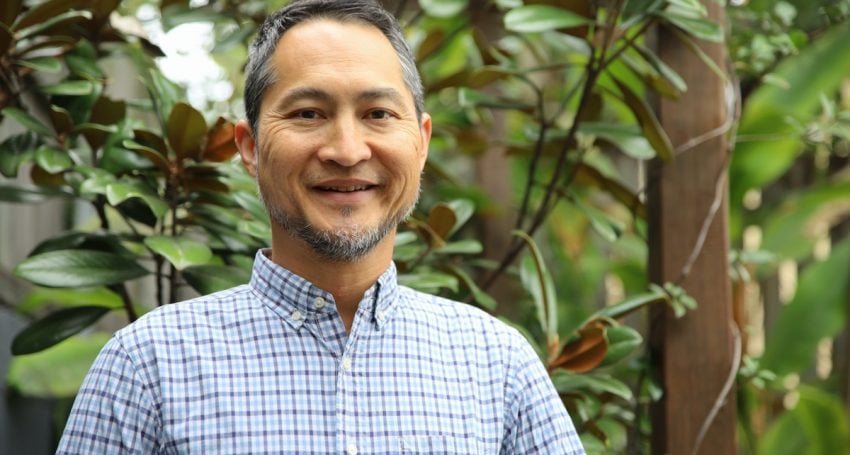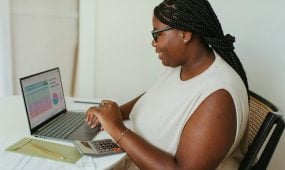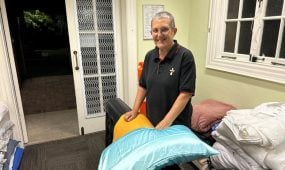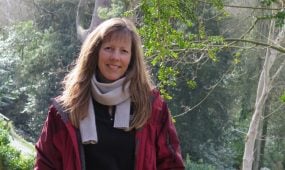Anglican Church Southern Queensland synod carries three related motions: anti-semitic attacks, Islamophobic attacks and a new social cohesion working group
Justice & Advocacy
“As someone who has experienced racism, I understand why a whole-of-community approach to religious-based prejudice and racism is necessary,” says Justice Unit coordinator Peter Branjerdporn regarding three recent “social cohesion” Synod resolutions

“Social cohesion” was raised during the recent Synod, and in the context of three Synod resolutions, including one that:
- encourages all Christians to oppose anti-semitic attacks wherever they occur.
- encourages all Christians to oppose Islamophobic attacks wherever they occur.
- assemble[s] a working group to explore ways of supporting social cohesion.
The following Synod motion, which was carried about “anti-semitic attacks”, was moved by David Walter Drake from The Parish of Hamilton and seconded by Michael Willis from The Parish of East Brisbane:
“That this 2024 Synod of the Anglican Church in Southern Queensland seeks social cohesion in Australia, condemns recent acts of aggression and intimidation against Jewish fellow citizens and encourages all Christians to oppose anti-semitic attacks wherever they occur.”
While this motion was being debated, The Rev’d Canon Paul Mitchell from The Parish of Bulimba sought to succinctly combine both anti-semitism and Islamophobia in the one motion. However, because a given Synod motion needs to be considered on the basis of the motion’s intention this was deemed “out of order”.
Advertisement
The following Synod motion was subsequently carried about “Islamophobic attacks”, and was moved by The Rev’d Patrick King from The Parish of Hamilton and seconded by The Rev’d Jilleen Chambers from The Parish of Kilcoy:
“That this 2024 Synod of the Anglican Church in Southern Queensland seeks social cohesion in Australia, condemns recent acts of aggression and intimidation against Islamic fellow citizens and encourages all Christians to oppose Islamophobic attacks wherever they occur.”
The following third Synod motion, which was carried about assembling a social cohesion working group, was moved by The Ven. Robert Sutherland CSC from The Parish of Moggill-Mt Crosby and seconded by The Rev’d Kate Ross from The Parish of Bundaberg:
“That this Synod notes with sadness the religiously motivated attacks within our community, which diminish our social cohesion, and calls on the Synod to assemble a working group to explore ways of supporting social cohesion.”
The Ven Rob Sutherland, who is also an Army chaplain, spoke eloquently when he moved this motion, saying that:
“Your Grace, members of Synod, we are surrounded as the Church has been since the time of St Paul by those who wish to divide our community. There are many who use religion — their religion — as an excuse to divide, to disparage and at times to physically attack others in our community on the basis of their religion. Australia has worked hard at many levels to promote religious tolerance and inclusion. As an Australian Defence Force chaplain, I work in support of those of any, or no, declared faith. Social cohesion is vital to any effective Defence Force or any organisation. I have seen and used things which, from a faith perspective, can work positively to the benefit of all. In my experience Christians benefit greatly from understanding the religious beliefs of others — those of no claimed faith can both understand what they do believe in, and often find their own need for faith through this process. In my experience everyone believes in something even if they don’t know it. We as a Church, as a diocese, have opportunities to provide leadership.”
Advertisement
I have given much thought to social cohesion and racism and what these mean in the inter-faith and wider Australian community contexts since Synod, and to how our Diocese can be a leader in this space.
Dr Max Kaiser, an Australian Jewish historian who is an expert on Jewish responses to fascism, including on Nazi Germany, since the 1940s explains that:
“…the only way to effectively fight antisemitism is by committing to work in partnership with other groups facing bigotry and discrimination, and to fight all forms of racism.”
Similarly, Australia’s Race Discrimination Commissioner Giridharan Sivaraman said “a united approach to anti-racism is essential if our society is to better address and ultimately dismantle systemic racial discrimination in all its forms.”
And, Dr Nora Amath, who is the Executive Director of the Islamophobia Register Australia, is always quick to condemn both Islamophobia and anti-semitism, along with racism as a whole, in her organisation’s statements and in her speeches, recently stating that:
“By fostering an environment of respect, understanding and empathy, we can together combat Islamophobia, antisemitism and all forms of racism…”
So, it makes sense for us to work towards stopping both anti-semitism and Islamophobia, and other religious-based or racialised prejudice, by working in a collaborative way to create a kinder and more compassionate community.
I have experienced racism, both directly and indirectly — and it is demoralising and dehumanising. In a former workplace, a colleague started ranting to me about “Asian students coming here to study and never returning home” and “taking our jobs” all morning. I was so upset I left work early.
During the early onset of COVID-19, most people of Asian descent whom I know were looking over their shoulders because of vitriolic social media commentary and news stories of verbal and physical attacks. Because I am ethnically Chinese, I was anxious myself during this period.
As someone who has experienced racism, I understand why a whole-of-community approach to all religious-based prejudice and racism is essential.
And, I look forward to working collaboratively and constructively with the Anglican Church Southern Queensland’s social cohesion working group and with inter-faith and multicultural leaders so all people in our community can live in peace and safety.





